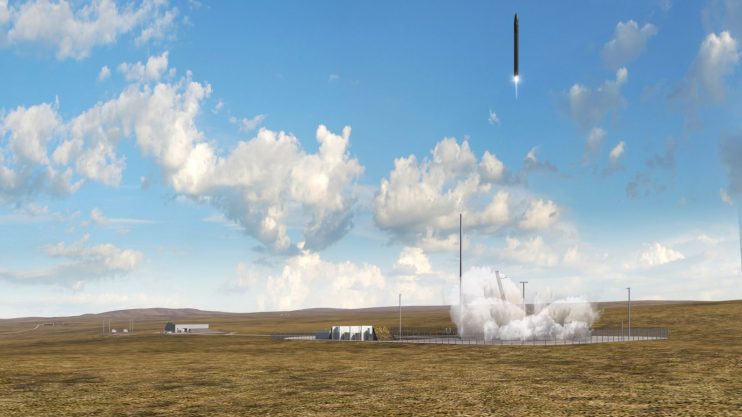Sit down: The CEO of the UK’s first-ever space flight regulator

The UK’s recently unveiled space regulations mark a “really important milestone” for the country as an island emerging from a pandemic following Brexit, the boss of the UK’s aviation watchdog has told City A.M.
Civil Aviation Authority (CAA) boss Richard Moriarty – the regulator now responsible for space flight – explained fresh rules governing the growing industry “signal that we’re open and ready for business.”
“We’re now able to issue licenses for people looking to launch into space and looking to build space infrastructure,” he said, as the UK readies a total of seven planned space ports.
Beyond licenses, the CAA will ensure that space flights do not jeopardise public health and safety, undermine national security and consider national interests, international obligations and environmental impacts.
It came ahead of the UK’s new space strategy, published earlier this week, in which the country set out its plans to become a ‘space nation’.
“It illustrates our shared ambition to support the growth of the UK’s space industry,” Moriarty said, as the CAA can bolster the strategy with “world leading regulations and innovative technologies”.

With a 40-strong team, comprising of experts from a range of space and technology avenues including the UK Space Agency, the Canary Wharf-based watchdog will help support the UK’s ambition to be “the first country in Europe to have space launch from its own territory.”
There is a lot going for the UK to achieve this, Moriarty added, as the UK has – by chance – a highly convenient geographical advantage.
“We are a part of the globe where if we launch satellites, they can orbit and be in daylight 24 hours a day which is really good for climate monitoring,” the CEO explained, which will be particularly valuable as the world rallies its efforts to tackle climate change.
Business, not leisure
But space tourism, he thinks, may still be a way off.
Moriarty admitted that despite the recent ventures of Richard Branson and Jeff Bezos, the sector is still a fair way off people holidaying in space.
However, orbital endeavours with the goal of climate modelling have become a key focus among space-tech firms and the government’s post-Brexit motivation to be both a climate and science leader.
With the focus on satellites over passengers, and Glasgow a European satellite-making hub, the UK is well positioned to capitalise on what Morgan Stanley earlier this year forecast to be an around £253bn industry globally.
“Opening up commercial space has some great benefits, particularly in terms of climate monitoring and gathering data around the sustainability challenge. But our priority is to make sure that it is safe and the public is protected.”
France, Norway and Austria are among a growing number of European countries “eyeing up” the sector.
If more countries set out their own regulations, it will be hard to bat off calls for a standardised system for the international playing field – which is the typical “life cycle” of regulatory development in aviation and aerospace, Moriarty explained.
“Given our natural advantages and that we’ve already got a burgeoning space sector, I really do think this is an area where the UK can play a leadership role internationally, and certainly within Europe.”
But one of the greatest attractions of the space sector, Moriarty concluded, is that “it reaches into the homes and hearts of individuals around the country that wouldn’t otherwise get involved in science and STEM subjects”.
“If we can make a contribution to inspiring the next generation, then I think that’s a legacy to be proud of.”